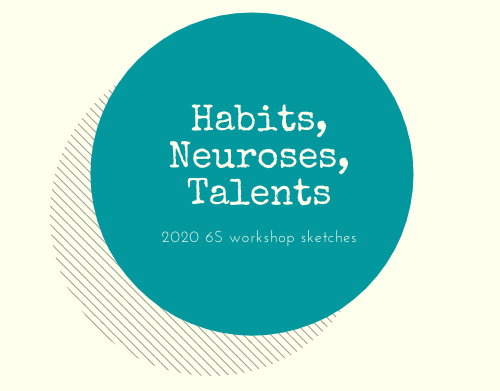
We will hold this sketch's live workshop on August 17, 2020 at 9 AM EST.
All participants who annotate this essay by August 14th will receive an email with the Zoom link to attend the session.
Live notes will be taken on this document. Please assign at least one note-taker for your session.
Join the 6S Slack channel for any further discussion here.
For the 6S virtual workshop, we are utilizing the following code of conduct for online workshops and conferences developed by Eleanor Armstrong and Divya M. Persaud (both University College London), and originally used at the...Read more
This is the PECE collaboration agreement that lays out the general ethos of working in PECE (the open source software that STS Infrastructures relies on).
In participating in PECE projects which includes 6S workshops, I recognize that:
1)...Read more
This sketch is designed to help you think about your own thought and work style -- which will help you strategize your own work process while also helping you see what you bring to collaborations. Note that the same questions can be directed at the people or even organizations you study (though it takes quite deep ethnographic material and insight to be able to answer them). You should read these two essays before answering the questions below (which extend from the analyses made in the essays):
***
After reading the works above, annotate this essay (here) with your responses to the following questions. Copy-paste the questions below into the annotation text field where you will answer them.
Once all participants have completed their sketches, we will now complete a round of peer review. Click on this annotation question that was used for the sketch. Review your peers' materials and responses. After reviewing, click "Annotate" on the artifact below and select the "6S 2020 Elaborative Peer Review" questions to provide feedback on your peers' responses.